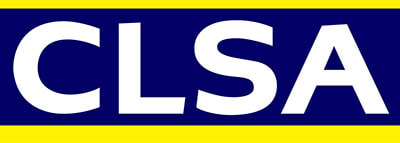|
As Sylvia carved out the Culture Alignment plan based on Trevor’s needs, a main part of this was to create high performers at every level of the organisation. She was most enthusiastic about this part of the project as it was sexy, challenging with the most bang for buck. She recalled a day when she drove out to do a keynote address to heads of private banks. Her mind was systematically going through points she had to raise. A talk back radio show was going on in the car. The DJ asked callers to share how they would celebrate Boss’s Day with their superiors. There was a caller who stood out. She said she did not really like her job but stayed for six years solely due to her boss! She said, “My boss is amazing. Every time I think about moving I fear landing up with a horrible boss.” What made the ‘perfect’ boss who was so highly appreciated?
Many years before that the Hay Group had partnered with Daniel Goleman in a research survey amongst top organisations worldwide. They identified the six most effective styles of leadership as follows:
Sylvia’s observation of leaders in senior management over the years was that effective leadership emerged from a combination of a few styles. Although some had a dominant style, these leaders exhibited behavioural flexibility to increase their repertoire of skills. Above all it was about mobilising individuals towards a higher collective goal, larger than their personal ambition. Empowering the workforce, an openness to new ideas and building successful people through professional growth were some consistent themes of success. Sylvia saw these as skiing the slopes of management, to know when to swerve around the obstacles, slow down, pick up speed and read the terrain. Great leaders were able to step into different roles that were required for different situations. Being at the top of the mountain gave them perspective of the situation, just like an observer watching a game. The next role was doing the job at hand whether going up or down the mountain. Over time this augured well for leaders to operate out of experience. Climbing the mountain they saw and knowing the enormity of the job. Skiing the slopes with speed or as gently as they saw fit was a choice they had to make depending on the terrain ahead. Empathy was also instrumental – to be able to step into another’s shoes. So often leaders trumpeted their own cause but failed to see the other side’s perspective. Being at the bottom of a mountain watching myself ski down the slope required me to step out of “me”, lending an objective stance to the scenario. Some of our greatest political leaders such as Nelson Mandela, Mahatma Gandhi and Sir Winston Churchill, showed us respect was earned through behaviour rather than by virtue of the positions they held. I know they would have stepped into the shoes of others to understand what they wanted before making their decisions. That is how they received a strong following. Sylvia was carving out tenets for high performers in the organisation. She was developing leaders with programmes to make them coaches and mentors. It was proven that leaders who tapped into their emotional and spiritual intelligences led their people more effectively than those who were steeped in academic theory. She couldn’t wait to see the results!
0 Comments
Your comment will be posted after it is approved.
Leave a Reply. |
SYLVIA FERNANDES
Sylvia is a qualified Neuro Linguistic Programming (NLP) Master Trainer. She started her business in Sydney and is now based in Singapore. Archives
December 2024
Categories |

 RSS Feed
RSS Feed









